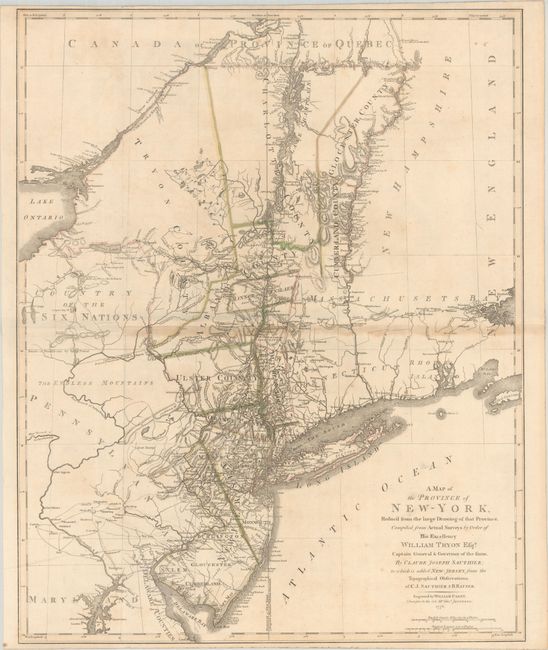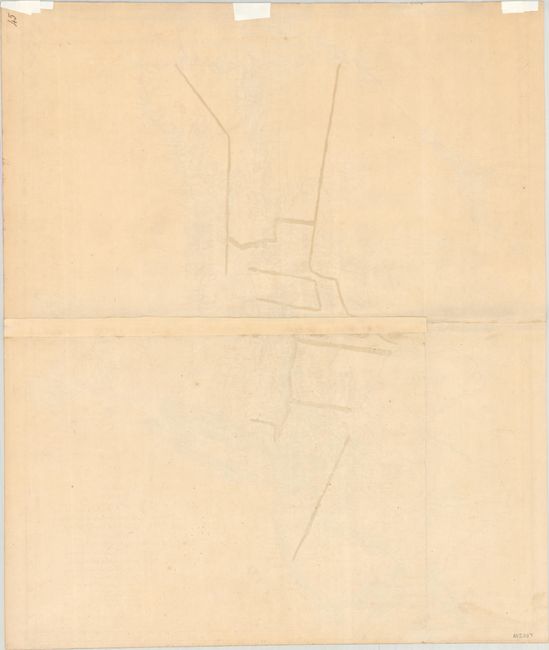Catalog Archive


Auction 195, Lot 196
Important Revolutionary War Map Based on Sauthier and Ratzer
"A Map of the Province of New-York, Reduc'd from the Large Drawing of That Province, Compiled from Actual Surveys by Order of His Excellency William Tryon Esqr...", Sauthier/Faden
Subject: Colonial Mid-Atlantic United States, Revolutionary War
Period: 1776 (dated)
Publication: The North American Atlas
Color: Hand Color
Size:
22.6 x 28.1 inches
57.4 x 71.4 cm
Download High Resolution Image
(or just click on image to launch the Zoom viewer)
(or just click on image to launch the Zoom viewer)

